Nippon Air Conditioning Services is innovating HVAC solutions in the face of pandemic and workforce challenges
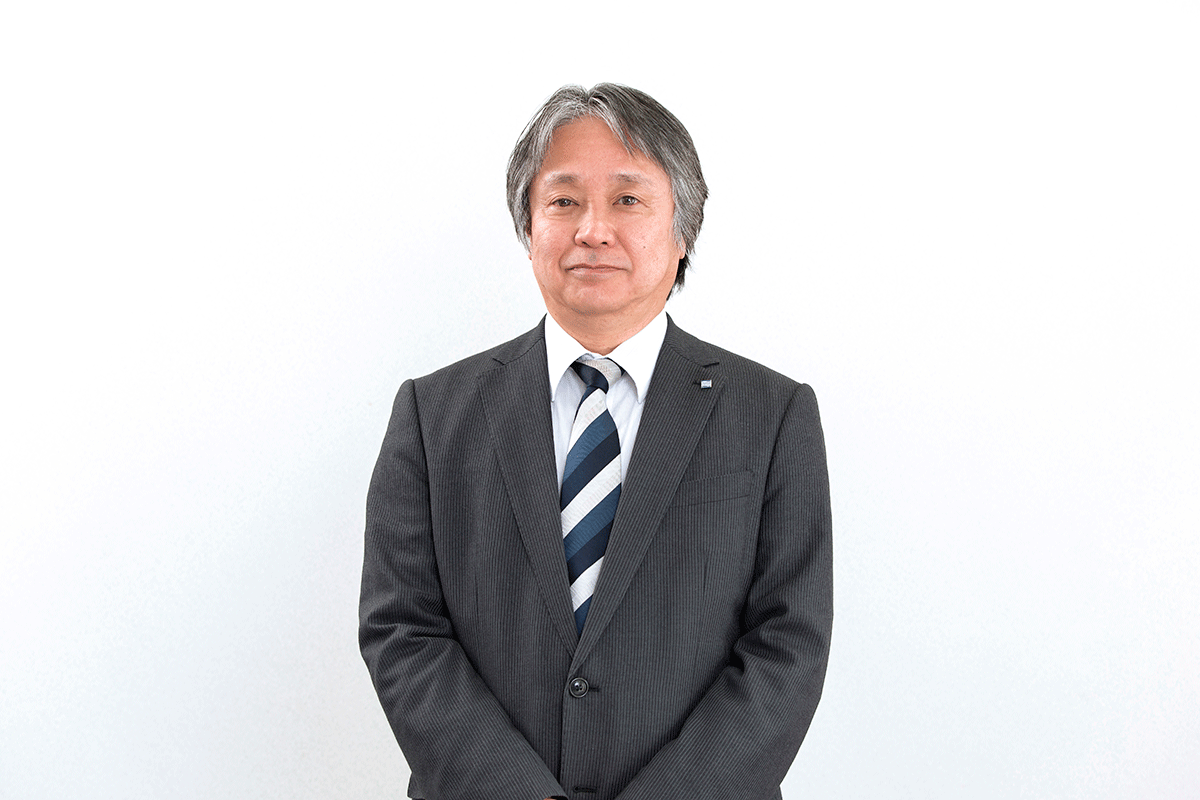
In the last 25-30 years, Japan has seen the rise of regional competitors who have replicated the Japanese model of success but have taken advantage of cheaper labor costs. This has pushed Japan out of certain markets. However, Japanese firms are still leaders when it comes to certain niche B2B fields. Due to Japan’s demographic situation, many firms have had to expand overseas. We know that you have expanded across Southeast Asia, to Singapore, Thailand, Vietnam and Myanmar. With this international expertise, what are some of the competitive advantages of Japanese firms when compared to their regional counterparts?
Most of our clients are Japanese firms. These firms appreciate our maintenance over the maintenance provided by local firms. I think that this is the case due to the fact that overseas firms only repair the damage once something is broken, and do not actually provide maintenance until then. However, Japanese firms place importance on managing their equipment to prevent any type of damage. We have our bases in locations such as China, Thailand and Vietnam. In those local markets, we cater to the Japanese factories in most cases. Local firms in those areas tend to seek the services of local companies as they are cheaper, and they only want the damage to be repaired. However, these local firms only repair the damage and do not provide proposals for environmental improvements. On the other hand, we are able to make proposals for the improvement of the equipment and we also provide ideas for energy saving with the existing equipment. I think that this aspect of our services is highly appreciated by our clients. That is something that differentiates us, and I think this is a strength of Japanese firms.
We know that you have 2,500 technical engineers across your network. However, we know that across these different locations, engineering skills can differ, and this can affect the final outcome of the service. How are you ensuring that the same level of quality is achieved across your entire international operations?
Experienced Japanese engineers are stationed in each country to provide technical and quality guidance to local employees to ensure a high level of service delivery.
We know that when managing hospitals, air conditioning has been able to efficiently save energy while also protecting the hospital environment. In fact, in the fiscal year 2021 when compared to the fiscal year 2010, a 450-bed hospital in Tokyo saw a 37.3% reduction in energy consumption and almost a 3,000t reduction in carbon emissions. How are you able to achieve these significant reductions?
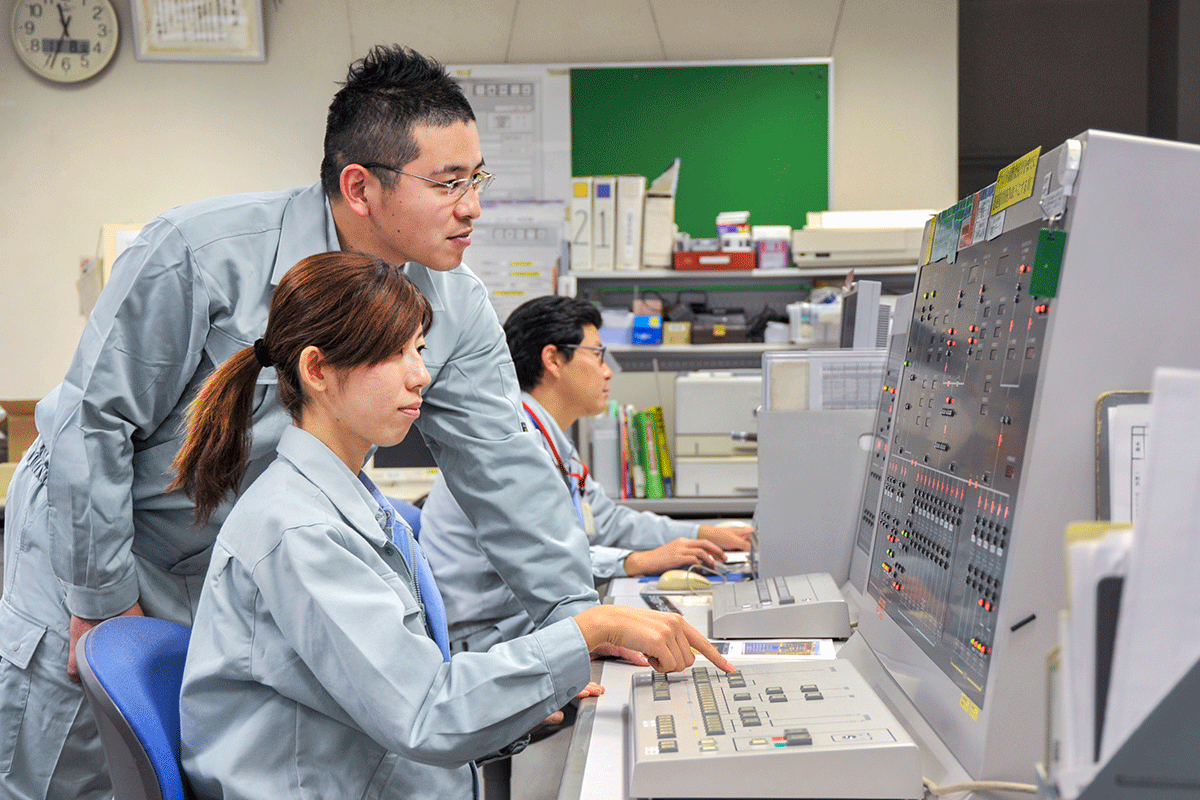
Maintaining the environment by always keeping a close eye on the facilities is another of our specialties
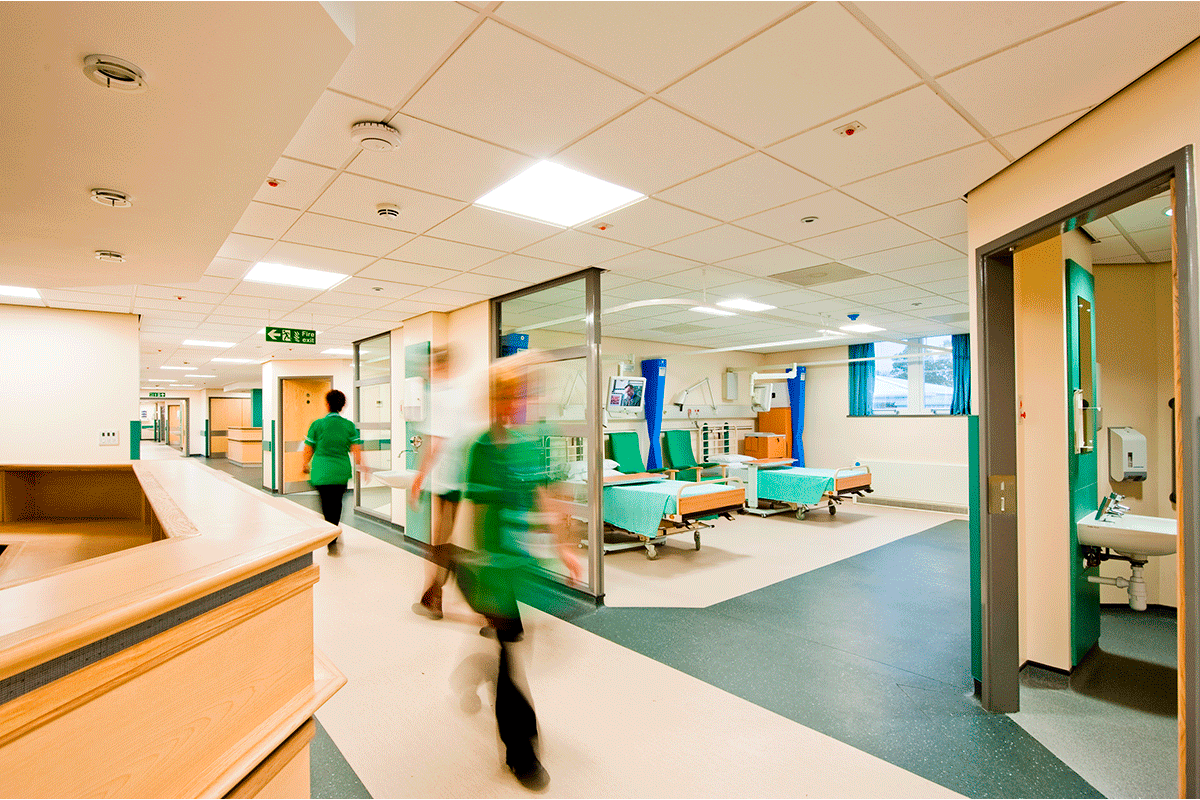
Our strengths include facilities maintenance at large hospitals, founded on our many years of experience at facilities with special environments
For these kinds of projects, we have our engineers permanently stationed in the facilities. We started to see a rise in the demand for energy saving and the reduction of electricity consumption in Japan after the Great East Japan Earthquake of 2011, as we needed to close the nuclear power generation plant. We promoted various energy-saving solutions, including the use of inverters in our facilities. Often, many pieces of equipment installed in hospitals are over-specified in terms of safety rates. Therefore, it is important to revisit this equipment and work with the clients to find the optimal way to maintain the environment and control the systems. We refer to this as eco-tuning. It greatly reduces overall energy and electricity consumption. It also allows us to maintain the optimal environment and optimal temperature throughout the hospital. We propose the equipment for energy saving and we propose ways to improve electricity consumption.
In this business model, we first propose the ideas for energy saving, and once the client agrees with our proposals, they make investments in the new equipment. This is our business model and we have accumulated know-how from each of these cases.
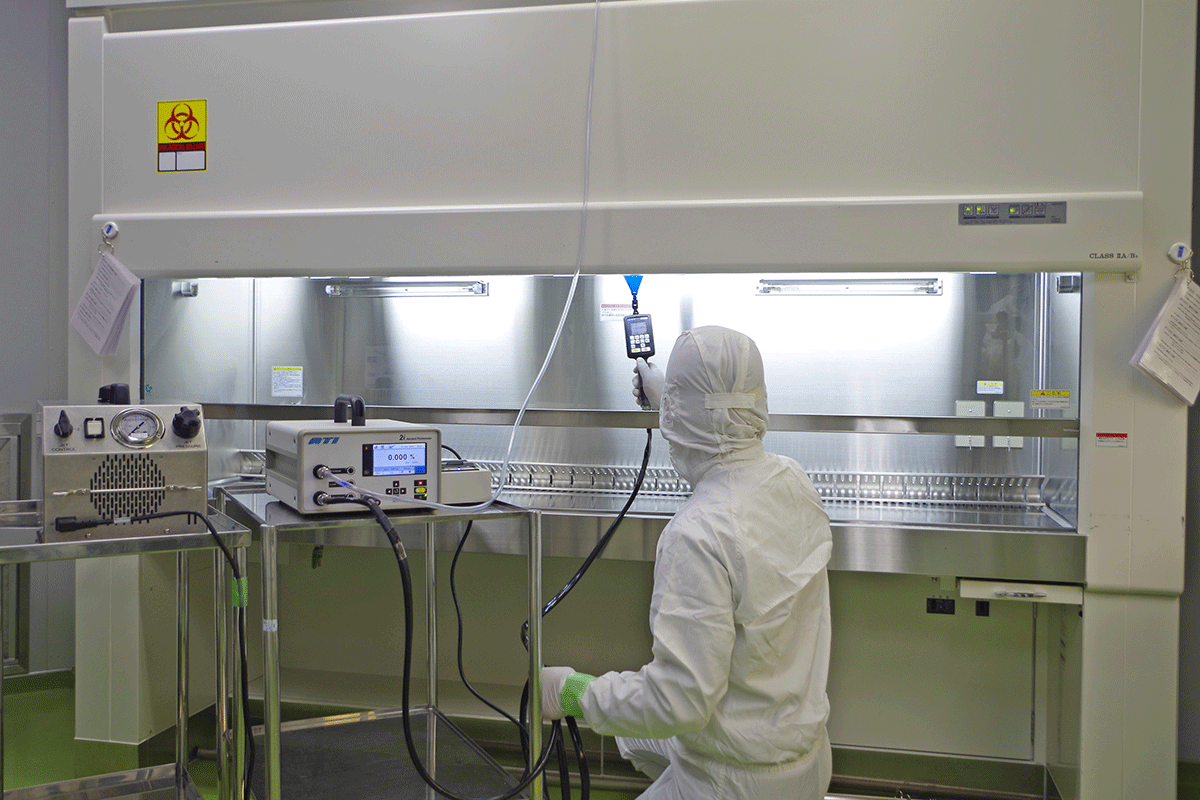
The engineers working in a facility(Environmental diagnosis service)
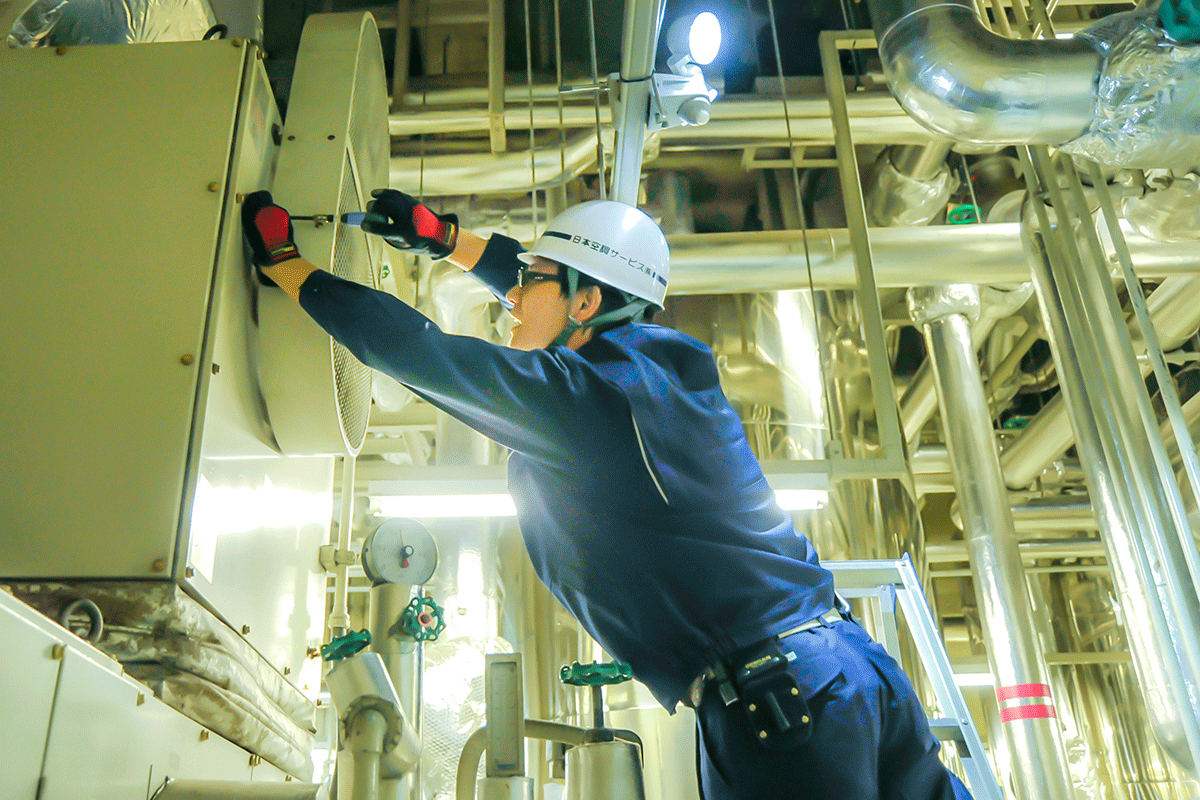
The engineers working in a facility(Regular maintenance service)
Another important need that the world recently saw was the need for proper ventilation due to the COVID-19 pandemic, as it was discovered that the virus could be transmitted through particles in the air. One of the best ways to reduce transmission was through the proper ventilation of buildings. As such, this shed light on infrastructure in public spaces such as schools and buildings that were in desperate need of HVAC upgrades. As a total support company of building facilities that has a focus on air conditioning, what impact did the pandemic have on your business and how did you adapt your air conditioning services to take into account the potential transmission of the virus?
During the time of the pandemic, hospitals needed to segregate the COVID patients and the non-COVID patients. However, they struggled to establish complete segregation between them. Some hospitals required wards specifically for COVID patients. It was a tough situation that the hospitals found themselves in. When it comes to the hospitals that we cater to, we made a lot of proposals including ventilation systems to help them to achieve their goals. We also made proposals for the optimal ways to improve their environment and facilities. All of these requests were urgent, so we worked closely with the clients to meet their demands as soon as possible to prevent the further transmission of COVID within the hospitals. Our engineers worked to complete that mission. However, as they worked in hospitals with COVID patients, they had a difficult time dealing with their work. Our employees used their knowledge and expertise to overcome this difficult situation. We really appreciated their efforts and their expertise.
Japan has one of the oldest populations in the world but also has a low fertility rate of just 1.3. This means that by the mid-century, Japan will have less than 100 million people. For businesses, this creates a huge issue in terms of recruitment as there is a much smaller pool of talented engineers to recruit from and the competition is high. Your business is very labor intensive in the sense that you have more than 2,500 engineers and you also have facility management where you station the engineers. First, in terms of human resources, how are you ensuring the longevity of your business? Are you actively recruiting foreign engineers? Are you looking to expand your network? Secondly, what can digital tools do to offset the need for labor on these sites?
When we recruit new employees, it takes between 5-10 years before they become fully-fledged operators or engineers. We have an education system for our new hires. However, it is getting more difficult to recruit young talent. We of course want to hire people from foreign countries. However, I have found that these foreign people tend to think that engineers are different from the workers who actually do the repairs. At our company, our employees do both the jobs of the engineer and the jobs of the worker. However, this can be hard for foreign workers to understand, as when it comes to our local competitors, their engineers and workers are completely different. When foreign workers come to work in Japan, they already have a certain academic background. Of course, we actively want to hire these people, but those with an academic background tend to not want to do the workers’ jobs. Therefore, it can be difficult to hire them. In the future, however, we would like to actively hire local people for our overseas bases. If we find good workers, we want those workers to come to Japan to work.
With regard to the use of digital tools, recently we have introduced some tools such as smart glasses and tools to take photographs of the operation site. This allows our seasoned workers to view the photographs and then give certain instructions to the engineers working onsite. However, different facilities have different problems and situations, which means that it is difficult to automate everything. With that being said, we are currently establishing a data bank where we can accumulate the know-how that we have learned from our different experiences in different facilities. That will allow us to use the knowledge from the data bank once any similar issues arise. I do believe that over time machines will be better at detecting equipment problems. However, I think that humans are still more efficient when it comes to repairing equipment.
One of the things that makes your company unique is that you are not closely linked to any construction or equipment firms. This gives you a sense of independence and allows you to offer tailored solutions to your customers depending on the facility they offer. With that being said, is there a particular project or facility that you have worked on that you are the proudest of?
While there is not one particular project that comes to mind, there are advantages to being independent from any manufacturer. It means that we can give solutions that are tailored to particular areas or particular environments and facilities. Once we visit the client’s facility, we often find that all of the equipment throughout the entire facility is provided by the same maker. For example, if a client is using Company A's equipment in one area, then you will find their equipment in the rest of the facility. The same goes for other HVAC companies as well. We can make a proposal that is tailored to one particular area of a facility, and the client can enjoy a combination of the most optimal proposals. We have a lot of information that we have accumulated from our experiences in different facilities. We do not have a particular project team for these optimal solutions. However, we have the advantage of being able to provide the optimal solution regardless of the brand.
When it comes to your customers, you highlighted earlier that most of them are Japanese, whether that be here in Japan or their factories overseas. Are you looking to expand your client portfolio to include more international companies?
We receive orders from foreign companies that are based in Japan such as semiconductor manufacturing plants and retail and logistics companies. We provide our services to these foreign capitals in Japan. However, we do not cater to the companies that are in the local markets in foreign countries, except for Singapore, as the situation there is quite unique.
Is that something that you would like to develop in the future? We know that when Japanese companies go overseas, they focus on Nikkei-based companies. However, as time progresses, they look to expand their services to local clients based in the area. Is that part of your mid to long-term plans?
We have just started expanding to the foreign market. Therefore, for the time being, we will continue to focus on Japanese firms and the expansion of our sales channels. However, over time, we will look to provide our services to local firms in the local markets, as we believe that these local firms will look for the higher-quality services that we provide. As long as we continue to provide our high-quality services, we will attract customers, as they will be able to provide higher-quality services and products to their clients. I believe that that kind of demand will increase in the future.
You just mentioned the importance of the expansion of your sales channels when it comes to your international business. Are you interested in partnerships as a way to strengthen this aspect of your business?
At this moment, we do not have a plan to look for local partners. However, in the future, we may do so. We acquired a local firm in Singapore and are now based in that local market. If there is any other country that focuses on the maintenance of its systems, we may look to do an M&A in that location. However, we are not able to do that just yet. If we do have plans to expand in a local market, we will first need to increase the number of our engineers there to address the local needs. However, at this moment we are not ready to do that.
If we were to return on the last day of your presidency, is there a certain goal that you would like to have achieved for the company by that date?
Our corporate mission is to make all of our stakeholders happy. We are still in a tough situation right now. However, I would also like all our employees and engineers to be happy and feel proud to be working for this company. I do believe that we are close to achieving that. I want to ensure that all of our employees are happy to work here. That is my goal for the future.
Interview conducted by Karune Walker & Paul Mannion
0 COMMENTS